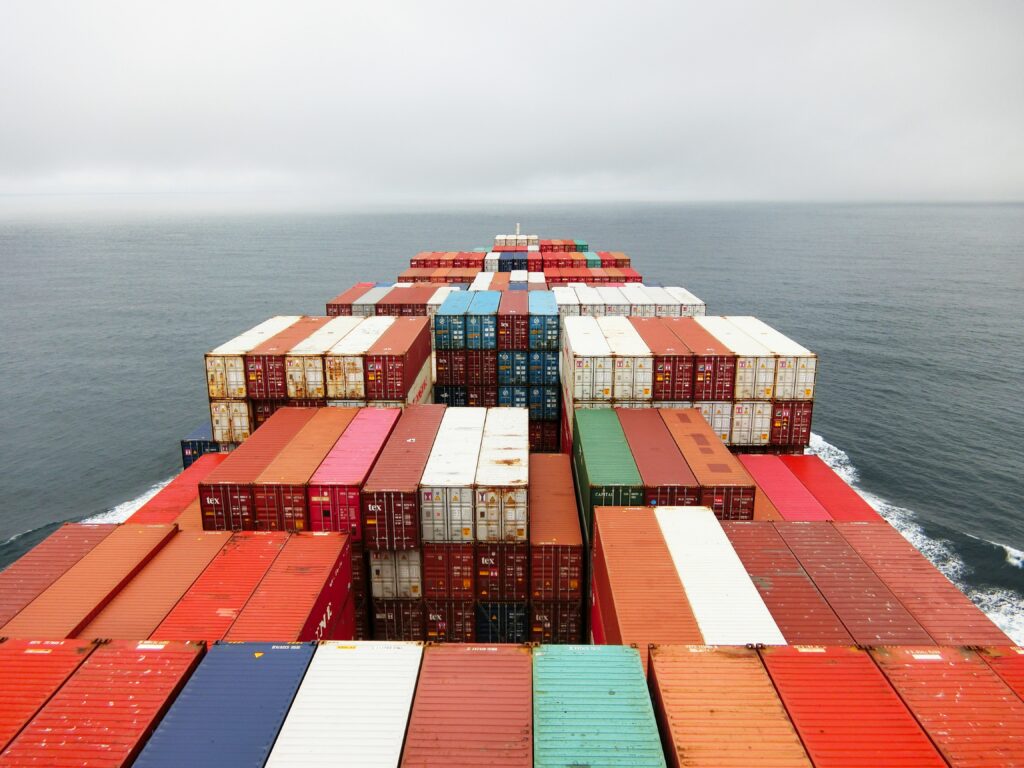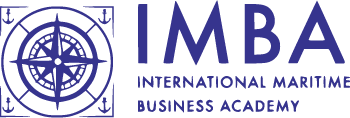INTERNATIONAL MARITIME BUSINESS ACADEMY
PGDM - SUPPLY CHAIN & LOGISTICS MANAGEMENT
The Post graduate diploma supply chain and logistics management, caters the knowledge of different skill sets like operation research and managerial activities. The degree provides specialization and in-depth hands-on practice in operation of products, management of design production and manufacturing of goods and services.
Affiliated To:
Sri Dev Suman University, Uttarakhand
(Affiliation No. 508)
Multi-Modular Programme
Action Learning

Real Time Brokering & Chartering
Placement & Internship
Course Curriculum
SEMESTER 1
(SCLM 101) Logistics and Supply Chain Management
Introduction to Logistics, Logistics and Competitive Strategy, Competitive advantage-Gaining competitive advantage through logistics, the mission of logistics management.
Meaning of benchmarking, Benchmarking the logistics process, Mapping supply chain process, supplier and distributor benchmarking, setting benchmarking priorities, Identifying logistics performance indicators.
The marketing and logistics interface, Customer service, Customer service and customer retention, Service, driven logistics system, Setting customer service priorities, Setting service standards.
Time based competition, the concept of lead time-Logistics pipeline management; logistics value engineering, the lead time gap, Just in Time (JIT) and quicker response logistics, Implications for logistics.
Creating the logistics vision, The problems with conventional organisations, Developing the logistics organisation, Logistics as the vehicle for change, The need for integration, Managing the supply chain as a network.
(SCLM 102) Export and Import Management
Basics of Exports, Classification of goods, Preparation for Exports, Methods of Exporting, Export Marketing Organizations – Functions, Registration formalities, IEC Number, Procedure of obtaining IEC Number, RCMC.
Aligned Documentation System: Commercial Documents, Auxiliary Commercial Documents, Regulatory Documents- Documents related to Goods/ Shipment/ Payments/ Inspection.
Factors, Methods of receiving Payment, Instruments of Payments, Letter of Credit, Pre-shipment Finance, Post-shipment Finance, Post-shipment Credit in Foreign Currency, Negotiation of documents with bank, Duty Drawback.
Objective of Quality Control-Methods, Procedure for Pre-shipment Inspection, Role of Clearing and Forwarding Agents, Role of Inspection Agents, Clearance of Cargo.
Exposure to international logistics – Process flow- Foreign trade basics – Government policies – regulations – stakeholders in international trade & supply chain.
(SCLM 103) Containerization and Multimodal Transport
Meaning, Major Container Trades, Container Operators, Container Ships-Terminal, Consideration of Container Terminal Planning, Container Distribution, Container types.
International Trade Distribution, Stowage: Meaning-Stowage of cargo, Factor Consideration, Types of cargo, Characteristics, Cargo and Container handling equipment, Types of Packing, Marking of cargo.
Multi-modal Trade Routes, Evolution, Basic Intermodal System, Modal Interface, Factors outline why shippers favour Multi-modalism, Factors in Development, Features, Multi Modalism Strategy, Components.
Liners-Tramps, Specialised Vessels, Terms, Road transport vehicle, Road Transport Weight and Measurement, Rail Transport Vehicle and Equipment, Air Transport, Ports.
Cargo Liability Convention: International Conventions relating to Bill of Lading (The Hague and Hague/Visby Rules (Appendix 8), Hamburg Rule, Convention relating to Through Transport operation by Land, Rail, Air, Conventions relation to Dangerous Cargo, Carriage of Perishable Goods.
(SCLM 104 ) Port Agency and Liner Trade
Basics of port agency operations, job of a port agent, skills and qualification required.
Different rules pertaining to ports, National Ports act, Harbour Master authority, Arrival and departure in ports.
PDA for different ports, factors influencing PDA, explanation of the factors, GRT, NRT.
Appointment by the owner, responsibility for goods, arrangement of pilots and tugs, responsibility for repairs, documents for custom and harbour services, crew sign on-signoff.
OPA and Charterers agent, various surveys, SOF, MR and B/L preparation, Loading, Discharging operations, Cargo care, spillages, P&I club, Issuance of LOP, Arrival of goods, Cargo manifest, Bill of entry, Custom duty.
(SCLM 105) Transport Economics and Optimization
Market demand, Transport as a derived demand, elasticity of demand, price elasticity measurement, income and service elasticity, Supply of Transport, elasticity of supply, Case studies on Road, Rail, Air transport.
Centre of Gravity method for Warehouse or Plant location, Equipment Replacement Analysis, The EOQ model for Inventory, Fixed reorder time and fixed reorder level type inventory models.
Introduction, Price discrimination, Case studies on Railways, Airline pricing, Low cost airline market, Solutions to low profitability and loss of market share, Coach pricing, Bus pricing, Price vs Quality.
Using Linear Programming (LP) for product mix determination, Use of LP for transport and logistics related problems, Assignment Problem in Logistics, Transportation problem.
Bus operating costs-privatised railways, costing the integrated railway (case studies) Airlines-cost levels, Forecasting Transport demand, revenue & expenditure, economic forecasting, case studies on forecasting costs & revenues.
SEMESTER 2
(SCLM 201) International Logistics and Global Sourcing
International Trade, Basic concepts of International trade Growth, International Trade Milestones, Largest Exporting and importing countries, International Trade Drivers, International Trade Theories.
Terms of Payment, International payment characteristics, Alternative Terms of payment, Risks in international Trade, Cash in Advance, Open Account, Letter of Credit, Additional types of letter of credit.
International Infrastructure, Definition, Transportation Infrastructure, Communication Infrastructure, Utilities Infrastructure, Service Infrastructure, Legal and Regulatory Infrastructure.
Managing Transaction Risks, Currency used in the sales contract, The system of currency Exchange rates, Theories of Exchange rate Determinations, Exchange Rate forecasting, Managing Transaction Exposure, International Banking Institutions.
Strategic sourcing: Supply management and commodity strategy development, Integrative strategy, conducting a spend analysis, category strategy development, types of strategies-in, sourcing/outsourcing, supply base optimization-supply risk management.
(SCLM 202) Port Management
Roles and responsibility of a port manager, characteristics of a port and terminals, various port administration models, port authority vs terminal operators.
Roles and responsibility of harbour master, safe and efficient pilotage services, maritime safety in context of environmental management.
Analysis of Port Economics Landscape, Review of port cost structure, income and pricing tariffs, Review of financial management practices for port managers.
Describe the historic and current port labour environment; discuss the effective management of staff in ports.
Inland waterways, Sagarmala project, optimal utilisation of port resources, Major and Minor Indian ports, Public and Private Partnership.
(SCLM 203) Port Economics
Theory of Port-Vessel port calls: networks- Vessel port calls: world country and vessel type-Ports and Economic development- Containerization –world container ports-Port users’ and service providers-Users: Carriers-Users: Shippers and passengers-Service providers-Port in operation-A Container port-A Cruise port-Specific ports in operation.
Resources-Operating options-Output- cost-Pricing-Carrier demand in port-Ports and ship size-Port choice and shipping lines-Shippers-Business logistics management- Supply chain management-Shipper demand in port-Port choice and shippers-Port choice and supply chains-Supply chain shipping capacity-Passengers-Passenger timeprices-Transportation demand by ferry passengers-Transportation choice and ferry passengers-Passenger demand in port-Port choice and passengers.
Operating options-Resource utilisation and congestion-Production and capacity-Cost- Costing port throughput-Port output measures-Effectiveness- operating objectives- Port prices-Port taxes versus User fees.
Port Governance-Port privatisation-Port governance in practice-Agglomeration-Port and cities-Performance evaluation: A single port perspective-Performance evaluation: A multi-port perspective-Port Competition- Water pollution-Air pollution.
Financial Statements and Ratio measures-Port Costs and costing-Types of Port Costs-Logistics costing-Analysis of Port costs from the perspective of Users-Economic versus commercial appraisal of port investments-Economic Appraisal-Commercial Appraisal of Port Investments-Project Risks and Risk Analysis-Port Financing and Private sector participation-Economic benefits of private sector participation-Public- Private Partnership-Port Pricing-Port Pricing Strategies-Port Pricing practices.
(SCLM 204) Basics of Computer Application
What is a computer, Block Diagram, Components of a computer system, generation of computers, programming languages, generation of languages, storage devices, floppy disks, CD ROM’s
Introduction, Functions, types, Components, Case Studies – DOS, Windows, Microsoft Office – Word, Excel, Power- point, Outlook: DOS and Window Concepts; Internet Usage.
Data, Data types, Advantages, Introduction to FOXPRO, Creating a database, Searching, Sorting, Indexing, Writing simple programmes, overview of MS Access.
What is word Processing, Features of MS WORD, Editing Commands and Mail merge. What is spreadsheet, Features, Formulae and functions? If Statement, preparing sample worksheets, Different graphs, Features of POWERPOINT. Preparing a presentation, preparing an Organization chart
What is Internet, Network, Network of Networks, WWW, Search Engines, email,websites. Introduction to e-commerce.
Course Perks
360 Degree Learning
- Live training by industry experts from India & Abroad
- Industry-oriented practical curriculum
- Dissertation & internships
Action Learning
- Step by step guidance
- Pre designed layout options
- Multi-modular programs
Career services
- Hands on practice on real site projects
- Personality development programs
- 100% placement and internship
Industry connect
- Sessions by industry experts
- Closure of MNCs
- Site stats for a bird eye view

Certified Diploma Guaranteed
Post completion of the course, candidates will be awarded a post graduate diploma from Sri Dev Suman university along with a certificate from IMBA. This degree and certificate is a golden ticket to the job of one’s dreams at leading commercial shipping firms and beyond.
Top-Tier Jobs Guaranteed
Ship Broker
Ship Manager
Port Agent
Port Operations Manager
Chartering Broker
Freight Trader
Project Analyst
Cargo Operator
Head of Marine Transportation & Logistics
Voyage Operator
Maritime Consultant

Testimonials
What students say?
Our Faculty

Mr. Jagat Pal
SENIOR FACULTY

Mr. Manish Srivastava
HEAD, DRY CHARTERING INDIA HOWE ROBINSON PARTNERS

Mr. Fabrice Duval
DIRECTOR OF INTERNATIONAL AFFAIRS
Book a call with our counsellor
FAQ
What Is Ship Brokering and Chartering?
Shipbroking is a financial service, which forms part of the global shipping industry. Ship-brokers are specialist intermediaries/ negotiators who facilitate the agreement between the owner of the ship and the owner of the goods for transportation by sea.
What is the average salary of an IMBA alumni?
After successful completion of the course, IMBA will assist you in getting employed with the best shipping houses in India as well as abroad. The salary package can range from anywhere between INR 3.6 lacs to INR 20 lacs inclusive of commission.
Do you give Scholarships for the course?
IMBA offers an international scholarship for the selected candidates to get trained with our hiring partners located in various countries such as Dubai, Singapore & London. Along with that, if the candidates are able to secure a brokering deal during their training period itself, they will get a full refund of the fees along with instant employment with our hiring partners.
What is the difference between the Merchant navy course and this course?
This certificate course in Maritime Logistics and Port Management is the commercial operation of the vessels which is completely different from the Merchant navy. While in the merchant navy you run the vessel from within, commercial shipping teaches you how to make money from it. This course will give you an in-depth knowledge of the shipping business and will assist you in knowing the source of money which governs the whole shipping industry.
What is the average salary of an IMBA alumni?
After successful completion of the course, IMBA will assist you in getting employed with the best shipping houses in India as well as abroad. The salary package can range from anywhere between INR 3.6 lacs to INR 20 lacs inclusive of commission.
Can I be employed in Dehradun itself?
We have an in-house Ship Brokering company as well as the branch office of our partners in Dehradun. Students matching the required standards and unable to move out of Dehradun will get an opportunity to be employed in Dehradun itself.
Why should I do a course in IMBA?
Excellent earning potential, International exposure sitting from Dehradun itself, opportunity to travel around the globe to meet clients. After gaining substantial experience, the opportunity to work with
- Howe Robinson Partners, Dubai
- Ikwezi Mining, South Africa
- IMR, Switzerland
- Emarat Maritime, Dubai
- Norvic Shipping, US
- Transbulk International Shipping, Dubai
- Seaspeeds, UAE & many more.
After this course, you will have the opportunity to explore your own entrepreneur skills and try to build your own firm. Be part of the industry which controls 90% of the world’s trade.
Copyright© 2023 International Maritime Business Academy.
